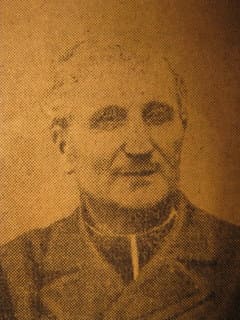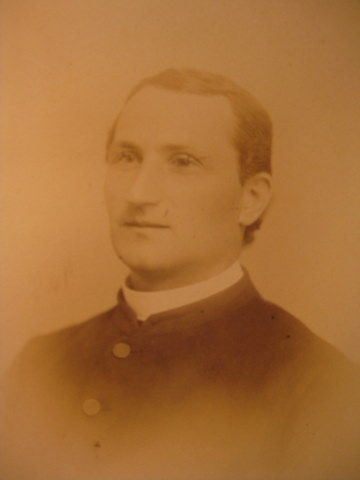Adolphe-Alfred Tanquerey, pss (1854-1932)
On 21 February 1932 the seminary world lost one of the great spiritual writers of the early twentieth century, Sulpician Father Adolph TANQUEREY. Born in Blainville-sur-Mer, France in 1854, Father Tanquerey was ordained a priest in 1878 and entered the Society of Saint Sulpice the following year. He was then sent to Rome to study Thomistic theology and canon law, after which he served on the faculty of the Sulpician seminary in Rodez for a time.
In 1887 he was assigned to teach in the United States, as he was a Frenchman who was open to learning English and willing to adapt to the different orientation of seminarians and priests in the New World. Thus Father Tanquerey became a faculty member at St. Mary’s Seminary & University in Baltimore, Maryland, the first seminary in the U.S. (1791). It was during these years (1887-1902) that he developed his theological acumen and composed numerous works in spiritual and ascetical theology, moral theology, and dogmatic theology.
His numerous publications became stellar examples of the “manual tradition” of theology. These manuals, which were used widely in seminary formation in France, the United States and elsewhere until the dawn of the Second Vatican Council (1962-1965), were the primary compendia of Catholic truth at the time for priestly formation. Typical of the genre, they were known for their polemical and apologetic approach to the Catholic faith, but in their day, they were considered quite progressive.
 Adolphe Tanquerey circa 1930
Adolphe Tanquerey circa 1930
Among Tanquerey’s most renowned works are The Spiritual Life: A Treatise on Ascetical and Mystical Theology (1930), A Manual of Dogmatic Theology (2 vols., 1959), Brevior Synopsis Theologiae Moralis et Pastoralis (2 vols.; 1902), and De Virtute Justitiae (1905). The first named is considered by many to be a classic in spiritual theology for its time. In the area of dogmatics and moral theology, Tanquerey made frequent use of Thomas Aquinas, the Fathers of the Church, and Alphonsus Ligouri, among many other sources. At the time, his books were considered comprehensive, well-organized, and extremely clear as an exposition of Catholic theology.
After the Council, Tanquerey’s works fell into disuse, as the manual tradition of theology was seen as too apologetic for the openness of the post-Vatican II era. Nevertheless, his publications remain useful for the breadth and depth of their vision that provided a solid theological foundation for generations of seminarians and priests.
On this 80th anniversary of the death of this great Sulpician, we give thanks for his ministry, his scholarship, and his contribution to the ongoing Sulpician tradition of priestly formation.



